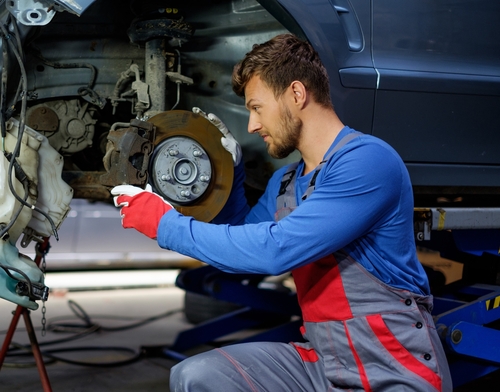Automakers Commit to Adding Automated Braking to All New Cars
The National Highway Traffic Safety Administration (NHTSA) has recently announced that 20 automakers, which supply 99% of the new vehicles available on the American market, have agreed to make Automatic Emergency Braking (AEB) systems a standard feature on all new vehicles. The manufacturers anticipate that all new vehicles should come with the safety feature by September of 2022. Safety organizations are enthusiastic about the vast number of crashes and injuries the change is expected to prevent.
According to the NHTSA, approximately a third of all police-reported accidents involve a rear-end collision. AEB systems work to prevent these types of crashes and, according to research, are excellent at doing so. The systems work by using cameras, radar, and lasers to inspect the roadway for objects or slowing traffic. When the system identifies a hazard in the road ahead, it will issue a warning to the driver that some sort of evasive maneuver must be taken to avoid a crash. If the driver fails to change course or take sufficient action, the AEB system intervenes. Crash-Imminent Braking systems will automatically apply the car’s brakes when the driver fails to do so whatsoever, whereas Dynamic Brake Support systems will increase the amount of braking power being applied by the driver when that amount is insufficient to avoid a crash. Front-crash warning (FCW) systems, a related but less-advanced safety feature, will also scan the road and warn of an imminent collision, but they have no ability to apply the car’s brakes.
According to research comparing cars with FCW and AEB systems to those without such systems, the additional safety features make a great difference in the likelihood of a serious crash occurring. According to studies conducted by the IIHS, cars equipped with only FCW systems are 23% less likely to get into a crash than those without that feature. AEB systems are found to prevent even more harm, making cars 39% less likely to be involved in a police-reported crash, and 43% less likely to be involved in an injury accident.
Cars may have more and more automated features, but if and when those features fail, the driver remains the responsible party for any accidents. Experts caution that even the most advanced crash-prevention systems can miss upcoming crashes or simply malfunction, and that drivers should remain attentive and engaged while driving to prevent injuries.
For skilled and determined legal assistance with claims for damages after an Alabama car accident, contact the Montgomery personal injury attorneys at McPhillips Shinbaum for a free consultation on your case, at 334-262-1911.










